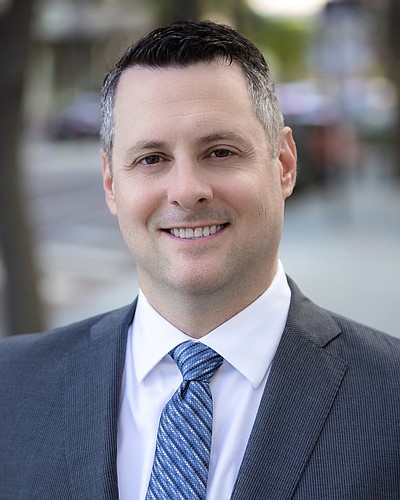- December 20, 2024
-
-
Loading

Loading

As economic wreckage from the coronavirus pandemic continues to pile up, bankruptcies have become commonplace. The COVID-19 crisis has claimed some of the biggest names in American business, particularly retail clothing brands, such as Neiman Marcus, J.Crew and Brooks Brothers. In May, 118-year-old JCPenney succumbed, filing for Chapter 11 protection.
With boldface names like those struggling, it’s not a surprise that much smaller firms, particularly in coronavirus-ravaged Florida, have also gone bankrupt or are considering bankruptcy.
‘Even after we have a [coronavirus] vaccine, it's not going to be an immediate bounce back. So if I don't choose to do this now, during an economic downturn, I'm pretty much saying I'm not going to do it.’ Scott Underwood, co-founder of Underwood Murray, a Tampa law firm
Seizing on the opportunity presented by a surge in business, Tampa attorney Scott Underwood — formerly chairman of the bankruptcy practice at Buchanan, Ingersoll and Rooney, a Pittsburgh-based national law firm and lobbying group — has launched his own bankruptcy-focused firm, Underwood Murray, along with business partner and fellow attorney Megan Murray.
For Underwood, it’s both a short-term, tactical move and a long-term strategy because he anticipates nothing but growth in the number of bankruptcies. Also, at 44, he’s decided it’s now or never if he’s going to fulfill a long-held dream of opening his own law firm.
“The economy is going to be slow to recover” from the COVID-19 crisis, Underwood says. “Even after we have a [coronavirus] vaccine, it's not going to be an immediate bounce-back. So if I don't choose to do this now, during an economic downturn, I'm pretty much saying I'm not going to do it.”
But at first glance, Underwood’s venture is also a counterintuitive move: He says bankruptcies are down since the start of the pandemic, but that’s mostly attributable to a drop in individuals declaring bankruptcy.
“There’s not a big advantage right now to filing a personal bankruptcy because there's a lot of rent concessions, stimulus money and the boost to unemployment benefits from the CARES Act,” he says, referring to the $2 trillion federal spending package signed into law in late March.
It takes some expert reading of the tea leaves to figure out the perfect time to launch a niche firm like Underwood and Murray have done, and he admits that even though business bankruptcies are up, there aren’t quite as many as he expected. He attributes that to the fact that many businesses are in wait-and-see mode because they were able to make it through the initial economic shutdown and uneven reopening thanks to resources like federal PPP loans.
“I can foresee a lot of businesses choosing to file Chapter 11 once the economy gets back to normal,” Underwood says. “Maybe if there’s a vaccine at some point in early 2021, there might be a rash of filings.”
He adds, “I can see a lot of companies saying, ‘OK, I've incurred all this debt during 2020, and even if my new business model will be successful, I simply can't carry this much debt.’ Businesses that can't carry an entire year of unpaid bills will file bankruptcy to truly reorganize and restructure, so that their debt stack matches the business's capability. That’s really the whole idea of Chapter 11.”
Asserting full control over the type of work he performs was another motivating factor for Underwood. He says Buchanan, Ingersoll and Rooney’s bankruptcy practice tended to represent the interests of secured creditors that are mostly large financial institutions. But he prefers to work with debtors and unsecured creditors, helping companies “save employees and save their businesses. … I just find that more rewarding.”
Apparently, some of his colleagues at Buchanan, Ingersoll and Rooney felt the same way. In addition to Murray, Underwood was able to recruit an additional attorney and a legal assistant to join him in opening the new firm.
“My hopes played out in that the immediate team that I worked with ultimately came with me,” he says. “I thought they would be open to coming with me and would be strong enough to do really good, complex work in a smaller environment.”
Just as importantly, most of the team’s clients also came along for the ride.
“We’ve been fortunate that our clients kept their trust in us in a smaller platform,” Underwood says. “And new clients aren’t bothered by not being represented by a 500-person law firm.”
Based on the insolvency and bankruptcy cases he and Murray have already landed, Underwood is in hiring mode. He expects to add even more attorneys as the firm expands into more transactional work and general corporate practice. And looking to overall future, Underwood of his new status as a business owner, says “it’s exciting and nerve-wracking at the same time.”